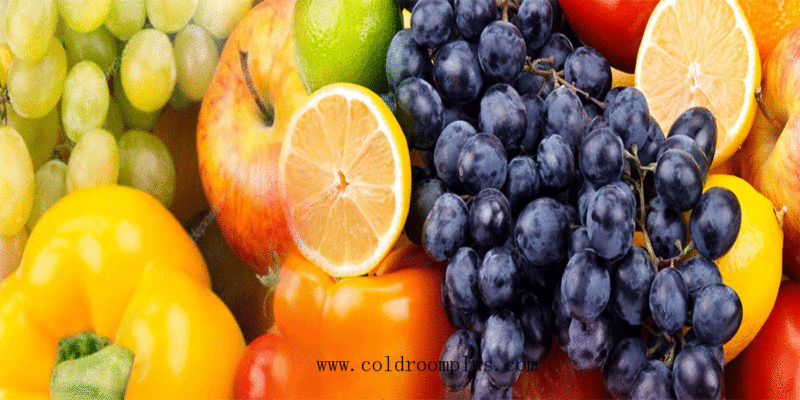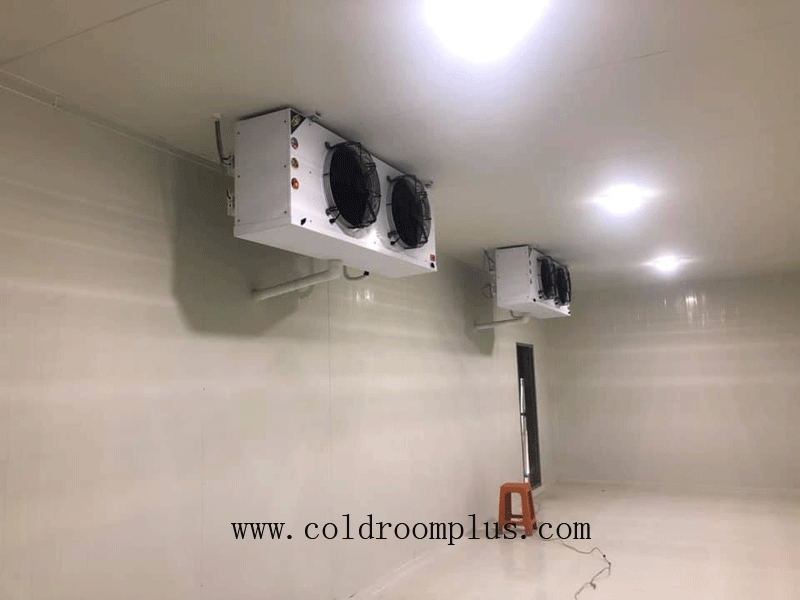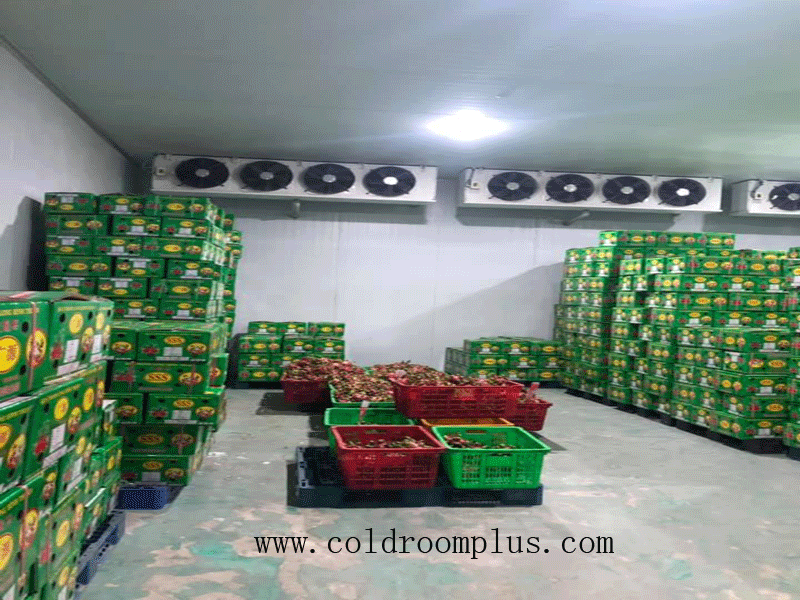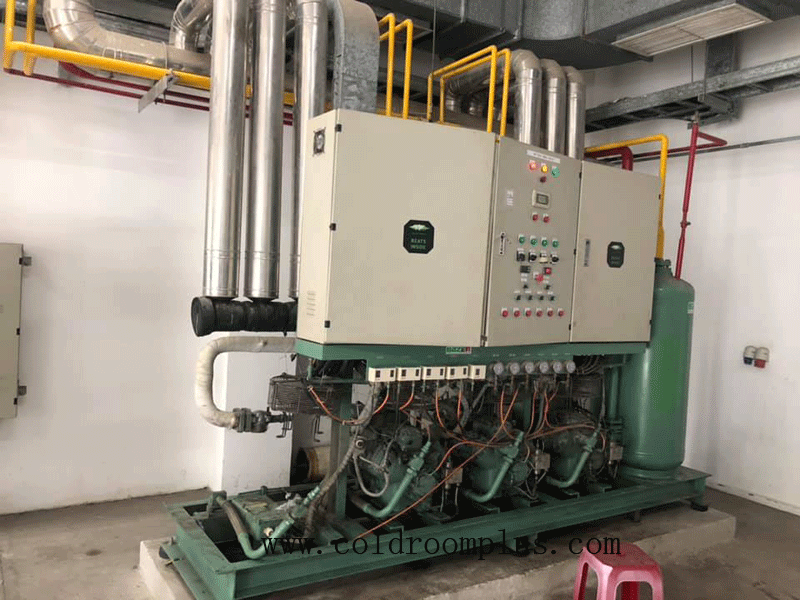Chiller Room for Sale is widely used to store all kinds of fruits. Deterioration of fruits during storage depends largely on chiller room temperature. One way to slow down this change and so increase the length of time fruits can be stored, is by lowering the temperature to an appropriate level. It must be remembered that if the temperature is too low the produce will be damaged and also that as soon as the produce leaves the cold store, deterioration starts again and often at a faster rate.

It is essential that fruits are not damaged during harvest and that they are kept clean. Damaged and bruised produce have much shorter storage lives and very poor appearance after storage. Dirty produce can introduce pests and mold into the chiller room for sale.
The produce should be harvested carefully using a sharp stainless-steel knife. The fruits should not be placed on the ground where they could pick up dirt. Either a clean harvesting basket or clean mats should be used.
It is essential that the fruits are harvested at the correct harvesting time.

If the produce is dirty it should be cleaned before fruit chiller room. The water used has to be kept clean or fungus spores will be spread throughout the produce.
Some fruit need their outer leaves removed before storage. However, usually it is better to leave the leaves on during storage to reduce moisture loss, and then remove them before sale.
Dipping the produce in cool water to remove field heat can reduce the energy requirements of the store. However, this can spread fungus spores throughout the produce. A suitable alternative is to pick the produce either early in the morning when it is cool or late in the evening and leave it overnight to cool down.
Temperature
All fruits have a “critical temperature” below which undesirable and irreversible reactions or “chill damage” takes place. The fruit chiller room temperature always has to be above this critical temperature. One has to be careful that even though the thermostat is set at a temperature above the critical temperature, the thermostatic oscillation in temperature does not result in storage temperature falling below the critical temperature. Even 0.5°C below the critical temperature can result in chill damage.

Storage conditions
There are basically three groups of fruit: those stored at 0 – 4°C; those stored at 4 – 8°C; and those that require a storage temperature above 8°C. It is often more convenient to concentrate on one of these groups.
Relative humidity
For most produce, a high but not saturated, relative humidity is required, for example, 85 – 95%. There is always some moisture loss during cold storage but excessive moisture loss is a problem. It is essential that the relative humidity is kept above 85%. This can be done by:
• Allowing the produce to reach storage temperature and then covering in plastic.
• Sprinkling the produce with water, this should be done before storage since if the vegetables are sprinkled during storage condensation occurs at the refrigeration unit.
Packing system
A packing system is required so that the produce can be loaded and unloaded easily and safely. This can be a system using crates that can be stacked or a more complicated system using racks and trays. It is important that the crates are small enough to be moved easily when full of vegetables, easily and safely stacked, strong enough to hold the weight of the other crates. It is essential that the airflow is not restricted, therefore a two foot gap should be left between the walls and the crates and three foot gap left between the crates, the ceiling and refrigeration units.

Fruit Chiller Room for Sale
There are PUF panel, refrigeration unit, unit cooler and other components for fruit chiller room.
OnlyKem’s chiller room panels not only prolong the life of your products, but will also save you money, as they’ll reduce your energy usage. It can be expensive to retain temperatures for fruit chiller room. OnlyKem PUF panels provide R-values of up to 50, enabling you to retain the temperature you need to cool your fruit without requiring your chilling equipment to perform as hard or as long. You’ll see this difference reflected in your energy bills throughout the year.
We will choose Copeland or Bitzer compressor for your condensing unit of fruit chiller room for sale. The function of the compressor in the fruit chiller room is to suck in the vaporized refrigerant from the evaporator by the movement of the piston, pressurize the sucked gas into a high pressure body and enter the air cooled condenser, and suck heat with cold water or wind, so that the high pressure gas condenses into a liquid and enters the air reservoir. The suction and extrusion of the compressor are performed simultaneously. Between the compressor and the expansion valve is a high pressure part, and only the high pressure can maintain the refrigerant in a liquid state.
